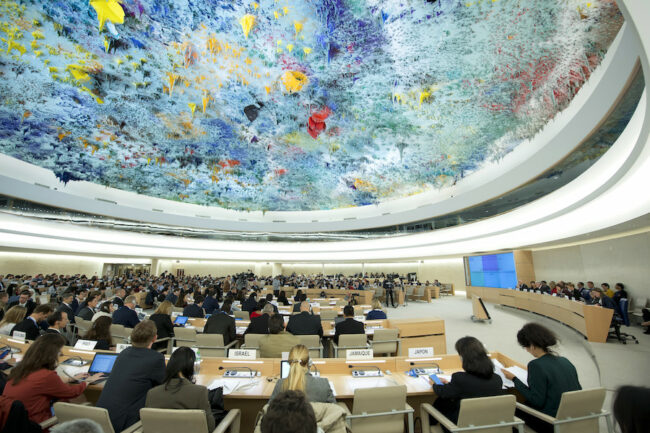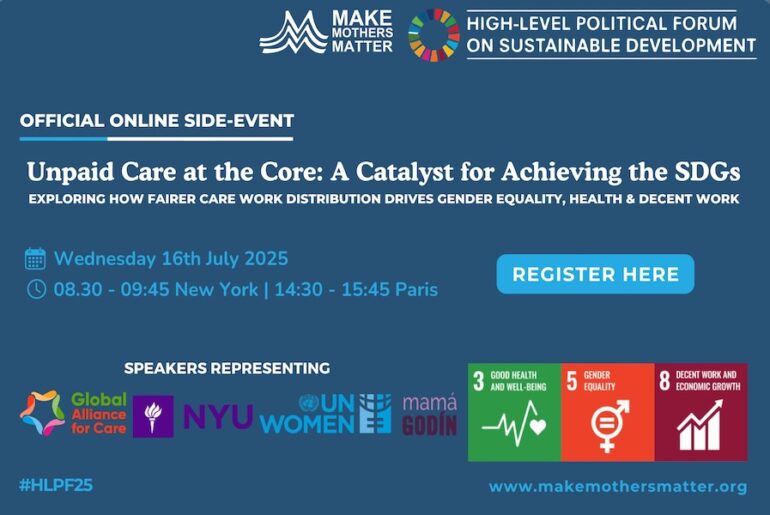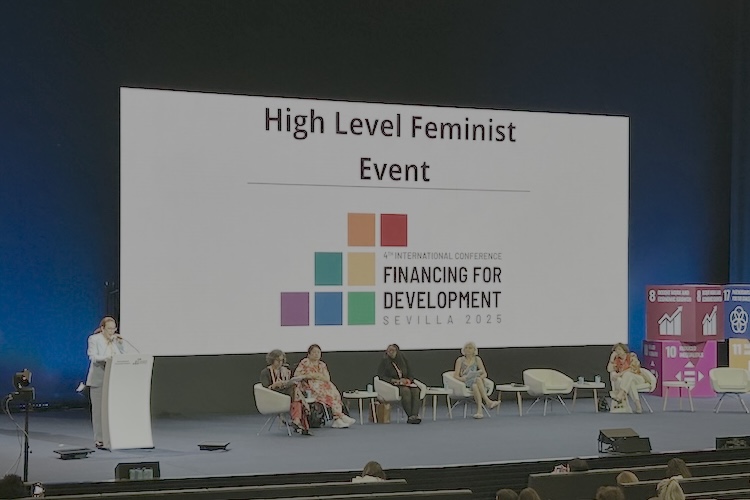Sharing the Care to address mothers’ poverty in old age
26.09.22
UN Geneva, Human Rights Council - In this recent oral intervention, MMM once again highlighted the vital link between the inequitable distribution of unpaid care work and women's ability to benefit from an adequate pension in old age. We continue to call for systemic changes supporting a more equitable distribution of this work between men and women and across society.

The following is the oral statement delivered by our main representative to the UN in Geneva, Valerie Bichelmeier, during the General Debate on Economic, Social and Cultural Rights, which took place on 21 September during the 51st Session of the Human Rights Council.
Building Back Better is now, and Make Mothers Matter would like to draw attention to the issue of poverty among older women.
Globally, 65% of women of retirement age do not have a regular pension.
Because of the damaging economic impact of COVID 19, even more older women are affected, exposing them to multiple vulnerabilities including social and health.
This situation is not accidental. it is the result of life-long discriminations and inequalities in the public and economic spheres, which all have their roots in the inequitable distribution of unpaid family care work. This work weighs heavily on the shoulders of women, especially mothers, at the cost of their economic independence and adequate social protection.
The indispensable, yet unpaid and unrecognized work of caring for others, sustains our society and our economy; it is also essential for the wellbeing of all. It must therefore be recognized as a collective responsibility and shared more equitably, not only between men and women, but also across society.
Building Back Better is now – and it requires systemic changes. A gender perspective and a human based approach in our economic and social systems is required, to ensure that unpaid care work is more equitably shared, and no mother, no older woman, is left behind.
Envisioning care as a common thread to global crises
29.07.24
UN New York - Our virtual HLPF side-event brought together experts to shed light on how the various global crises we face (in particular climate change and other environmental crises,
We call for multi-stakeholder approach to recognise and support unpaid care work
21.07.24
UN New York - Participating in the meeting of the UN Economic and Social Council (ECOSOC) on care and support systems, MMM reaffirmed the principle of co-responsibility, which should underpin
The New EU Gender Equality Roadmap : A Call for Inclusion of Mothers
04.03.25
The European Commission’s initiative on a new Gender Equality Roadmap post-2025, marks a significant step forward in addressing gender disparities across the European Union. Make Mothers Matter (MMM








